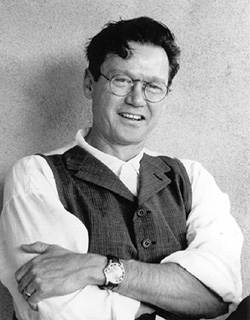 Jack Gantos has written books for people of all ages, from picture books and middle-grade fiction to novels for young adults and adults. His works include DEAD END IN NORVELT, HOLE IN MY LIFE, a memoir that won the Michael L. Printz and Robert F. Sibert honors; JOEY PIGZA SWALLOWED THE KEY, a National Book Award Finalist, and JOEY PIGZA LOSES CONTROL, a Newbery Honor book. Here, he answers a series of questions about recording DEAD END IN NORVELT.
Jack Gantos has written books for people of all ages, from picture books and middle-grade fiction to novels for young adults and adults. His works include DEAD END IN NORVELT, HOLE IN MY LIFE, a memoir that won the Michael L. Printz and Robert F. Sibert honors; JOEY PIGZA SWALLOWED THE KEY, a National Book Award Finalist, and JOEY PIGZA LOSES CONTROL, a Newbery Honor book. Here, he answers a series of questions about recording DEAD END IN NORVELT.
1) How long did it take you to record your book?
It took two high energy days of ‘on task’ recording to enunciate every word, paint in every emotion, and pace the plot of that 330 page novel.
2) How did you keep your voice “in shape” during the recording sessions?
Fortunately the main character in DEAD END IN NORVELT is Jack Gantos so I did not have to invent another narrative voice which may have caused me to stretch or strain my voice in an athletic way in order to achieve the voice of a fictional narrator. So it just all came down to drinking a lot of hot water as I was reading and taking breaks when necessary.
3) What word(s) did you stumble over?
What didn’t I stumble over? “Antidisestablishmentarianism” and any other word formed by agglutinative construction --- or simply, any word of four syllables. And for some reason it seemed that adverbs were particularly difficult to pronounce in such a way that they would seem effortless and in pace with all the two and four letter words with which I’m more accustomed.
4) What did you enjoy about the recording experience?
The recording studio teamwork was very fluid and supportive. So I felt quite comfortable and then once I began to fall into reading the story and seeing the story in my mind’s eye and anticipating the dialog and emotional pitch of each scene and character it felt something like pleasure. I was eager to do a good job and when I thought I had done so the relief I felt was very satisfying.
5) Did your book “feel” different to you as you read it?
Yes, as the voice painted in the emotions they became more keenly defined to me and in general the deep concentration brought to the reading resulted in a more three dimensional, filmic picture within me. The deeper concentration led to deeper satisfaction and a more thoroughly nuanced voice.
6) Any funny stories to share?
I had previously recorded five novels and some short stories and picture books so all the really dumb stuff like having your cell phone go off in your pocket, or unconsciously tapping your foot, or not taking off your loudly ticking wristwatch --- those issues were avoided. The only spontaneous issue is stomach growling, which was a nuisance.
7) Did you find yourself wanting to edit/rewrite? Did you? (any funny stories from producers?)
Well, if I now picked up a copy of my book and opened it I’d pull out a pen and begin to rewrite the pages. Its inevitable that you want to adjust the words --- add and subtract. I could tell my director and engineer were paying attention because when I did intentionally try to rewrite a sentence they would catch me. I think we played a little cat-and-mouse game with my spontaneous rewriting. (I think I may have slipped a few changes past them --- but don’t tell).
8) For authors who have had more than one book recorded: Did the experience of recording your audiobook change your writing process for your next book?
Good question. I don’t think so in my case. Recording a book is a two day process. Writing a novel is possibly a two year process. So the writing and rewriting which takes place as a mental exercise, and imaginative exercise pretty much overwhelms the process of reading a book.
9) Did you imagine any voices for your characters while you were creating them for the page? If so, what was it like trying to create those voices in the recording studio?
I had voices for them in my mind but I’m not terribly good at imitating voices (I can’t sound like the old busy-body Spizz, or young Bunny Huffer, but I can parse the emotions they exhibit in the book with the emotions I use when I speak for them. I depend on this emotional authenticity and I believe the listener does too. I may not be able to sound like a German or a Frenchman but if my character is sad or confused or jubilant then I can deliver that emotional tone.
10) Do you like to listen to audio yourself? If yes: where do you listen? What types of books do you listen to? Do you have any favorite narrators?
I do listen to audio books --- and always in the car. I listen to a lot of non-fiction and classic fiction. To my ear everyone sounds better than me so anyone I’m listening to I soon admire. I am partial to authors who read their own books --- through their voices you can hear the pens scratching at the page.


